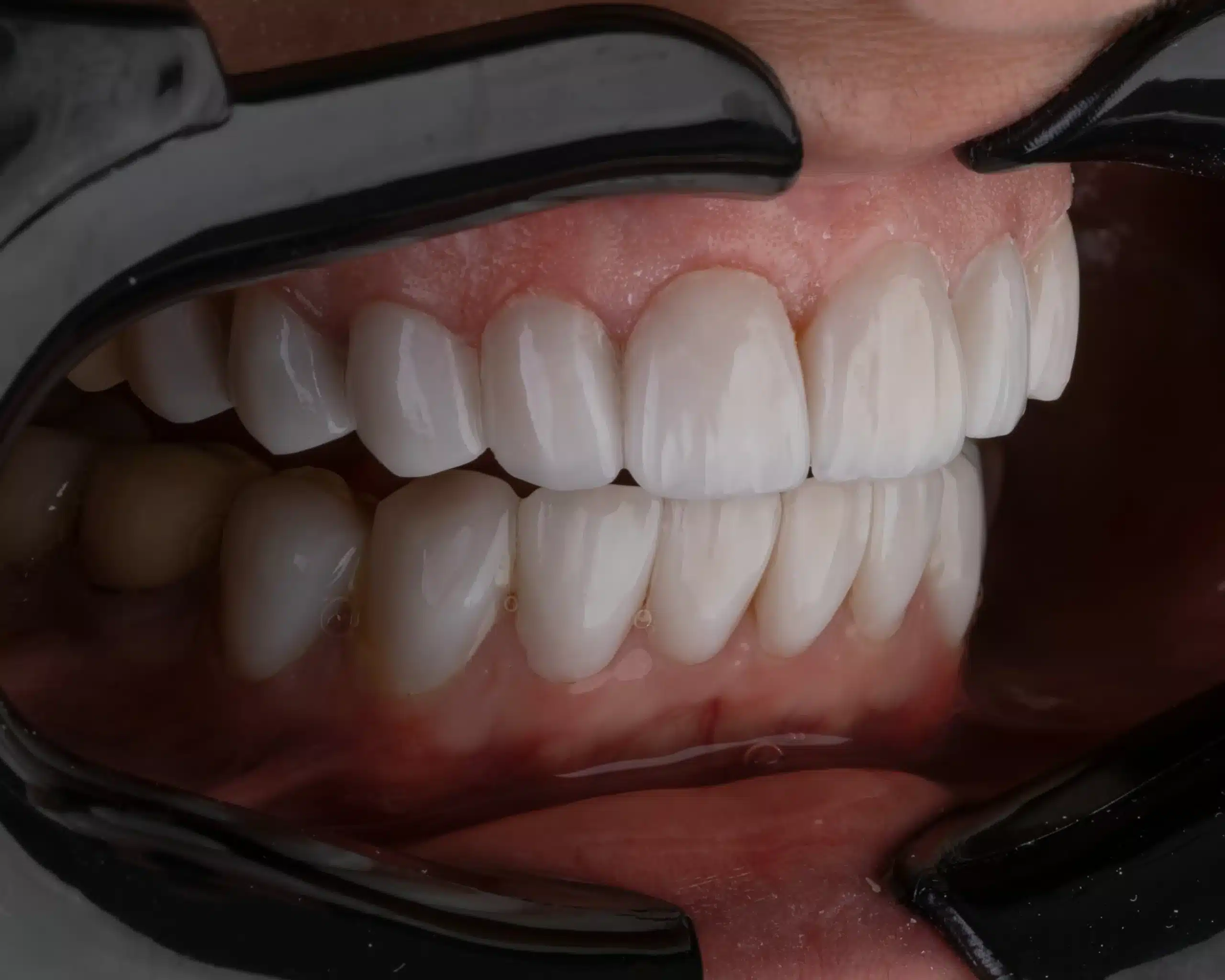Gum disease, also known as periodontal disease, is a common oral health problem that affects many adults, it is where the gums become red, swollen and sore and they bleed.
According to NHS inform, most adults in the UK have gum disease to some degree and most people will experience gum disease at least once in their life. The early stages of gum disease can often be painless and go unnoticed, it is therefore extremely important to know the warning signs, so that you can take action before the condition becomes worse.
In this article, we will be discussing the common signs of gum disease and how to prevent this condition.
What is gum disease?
Gum disease is an oral health condition that affects the tissue surrounding the teeth. It is a bacterial infection that can be caused by plaque build up on the teeth and gums, this build up of plaque can then cause inflammation which is known as gingivitis. This is the early stage of gum disease and it can often be painless, however, if it is left untreated, it can progress into periodontitis which is a more severe form of gum disease.
Signs of gum disease
Gum disease can sometimes go unnoticed in the early stages, however as it develops over time and the condition progresses, it can lead to a range of different symptoms. Understanding the warning signs of gum disease can help you to take early action in order to prevent the condition from getting worse. The NHS have outlined that signs of gum disease can include the following:
- Your gums bleeding when you brush your teeth, floss or eat any hard food
- Your gums become swollen
- Your gums are red
- Your gums become sore
- Bad breath
- Having an unpleasant taste in your mouth
- Any loose teeth
If you have any of the symptoms that are listed above, it is important that you see your dentist as soon as possible, so that they can diagnose your gum disease and provide you with a treatment plan.
Treating gum disease
If you have been diagnosed with any form of gum disease, there are various ways in which it can be treated depending on the severity of the gum disease.
The best way to treat gum disease is to practise good oral hygiene, however, additional dental and medical treatments can sometimes be necessary if the gum disease has worsened.
Good oral hygiene includes brushing your teeth twice a day for about two minutes, using toothpaste that contains the correct amount of fluoride, flossing your teeth regularly, not smoking, and visiting your dentist regularly. By practising good oral hygiene, you can remove plaque and prevent it from turning into a gum disease. Additionally, good oral hygiene can help to treat an existing gum disease by removing bacteria.
Another way to treat gum disease is mouthwash, antiseptic mouthwashes that contain chlorhexidine or hexetidine are available to buy from pharmacies and your dentist may recommend using a mouthwash if it can help to control the build-up of plaque.
There are some dental treatments that may also be recommended by your dentist including a scale and polish to remove any build up of plaque. Root planing may also be required and this is a deep clean under the gums that will get rid of bacteria from the root of your teeth.
If you have suffered from any gum disease, there are many different treatments that your dentist may recommend to you, the above are the most common but you may require further treatment, such as periodontal surgery if necessary, but your dentist should advise you on the treatment that you will need based on the severity of your gum disease.
Preventing gum disease
Gum disease is caused by built up plaque on the teeth. There are things that you can do in order to prevent gum disease according to the NHS:
- Brush your teeth with fluoride toothpaste at least twice a day
- Clean in between your teeth every day using floss
- Replace your toothbrush every 1 to 3 months
- See a dentist for regular check-ups
The NHS also states that:
- You should not use mouthwash straight after brushing your teeth
- You should not smoke
The NHS states that these are the things that you can do in order to prevent gum disease and preventing gum disease is essential in order to maintain good oral health. As discussed previously, the primary cause of gum disease is the build-up of plaque on the teeth and gums, therefore the best way to prevent any form of gum disease is to practise good oral hygiene consistently. By taking the steps that are stated above, you can keep your teeth and gums as healthy as possible and hopefully prevent the onset of gum disease.
Complications of gum disease
If you have suffered from gum disease and you do not get it treated or if you do not maintain good oral health, it can lead to further complications. If you develop gingivitis, which is an early form of gum disease, and you do not have the plaque removed from your teeth, this can lead on to periodontitis which is more severe. You may then develop further complications if you do not treat the periodontitis including:
- Recurrent gum abscesses
- Increased damage to the periodontal ligament
- Receding gums
- Loss of teeth
Poor oral hygiene and gum disease can lead to significant complications if not treated, so it is extremely important to maintain good oral hygiene and regularly visit your dentist so that you can be treated swiftly if you do develop a gum disease.
Periodontal negligence claims
Gum disease is a serious oral health condition that can cause many issues and can lead to teeth falling out. Negligent dental care can contribute to the worsening of gum disease and if your gum disease has been missed or misdiagnosed, you may have suffered from unnecessary pain and you may be able to claim for compensation.
Periodontal negligence claims can be made in cases where negligent dental care has resulted in the development or worsening of gum disease. Some common types of periodontal claims can include failure to diagnose periodontal disease, a delay in the diagnosis of gum disease, failure to treat your condition and if necessary, a failure to refer you for specialist treatment for your gum disease. If you have suffered from any harm or injury due to dental negligence regarding your gum disease, we can help you to make a claim.
At Patient Claim Line, we work on a no win no fee basis, and we will guide you through the entire claims process. Our team of specialist lawyers have over thirty years of experience in dental negligence claims and we will take all of the stress out of your claim and help to ensure you get the resolution that you deserve.

